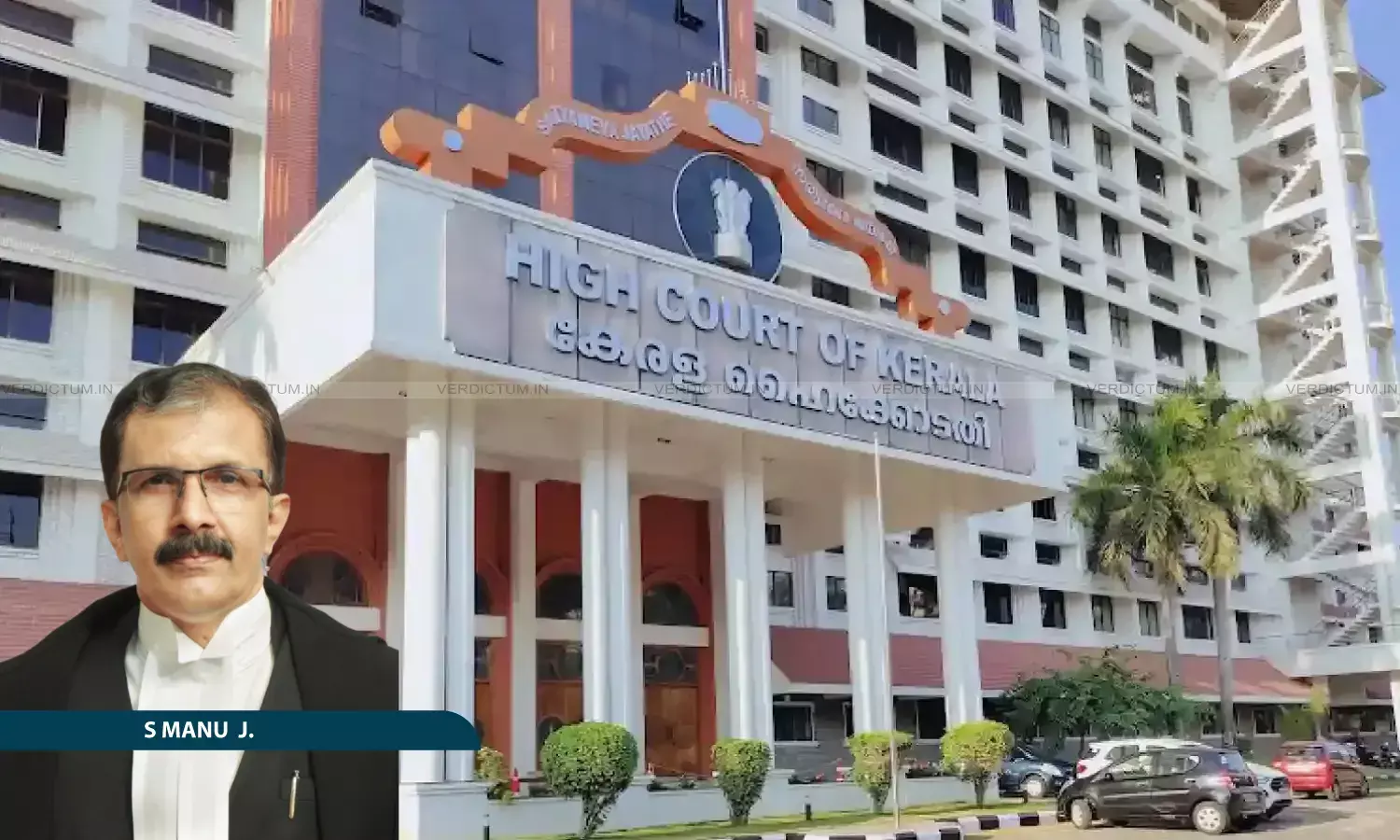Approval For Petroleum Outlets Cannot Be Denied Due To Proximity Of Colleges: Kerala High Court
The Court held that the Central Pollution Control Board’s 2020 guidelines restrict the siting of petrol pumps only in relation to schools, hospitals with more than ten beds, and designated residential areas, and do not cover colleges.

Justice S. Manu, Kerala High Court
The Kerala High Court has ruled that the Controller of Explosives cannot reject approval for setting up a new petroleum retail outlet merely because a college is situated nearby, clarifying that the Central Pollution Control Board’s siting criteria do not include colleges within its ambit.
The Court was hearing a writ petition challenging the rejection of approval for a proposed petroleum outlet at Mananthavady on the ground that the site was located within 30 metres of a college.
A single Judge Bench of Justice S. Manu, while adjudicating the matter held that “the Controller of Explosives cannot refuse approval for starting a new outlet for sale of petroleum products for the reason that a college is situated within the distance limits stipulated in the guidelines issued by Central Pollution Control Board. The distance rule under Paragraph ‘H’ of the guidelines dated 7.1.2020 would apply only in the cases of schools, hospitals with more than 10 beds and designated residential areas.”
Advocate R. Sunil Kumar appeared for the petitioner, while Deputy Solicitor General O. M. Shalina represented the Petroleum and Explosives Safety Organisation.
Background
The Indian Oil Corporation had invited applications for new petroleum retail outlets, and the petitioner’s land in Mananthavady was selected. Initial approval was granted in 2024, followed by a no-objection certificate from the District Collector.
However, the Deputy Chief Controller of Explosives later rejected the application, citing the proximity of a nearby college, the alleged absence of confirmation about the residential zoning, and non-compliance with CPCB guidelines. Aggrieved, the petitioner moved the High Court.
Court’s Observations
The Court closely examined Paragraph ‘H’ of the CPCB guidelines, which mandate a minimum radial distance of 50 metres, relaxable to 30 metres with safety measures, only in relation to schools, hospitals with more than ten beds, and designated residential areas. The Court noted that “only two distinct types of institutions, schools and hospitals (10 beds and above) have been specifically mentioned…” and that there is no generic/general term employed in the paragraph to bring any broad categories of institutions within its purview.
The Court also noted that the guidelines framed by the Central Pollution Control Board had themselves been placed before the National Green Tribunal, where the matter was deliberated by an expert committee. It was specifically clarified that colleges were not categorised as sensitive locations under the siting criteria, which were confined to schools, hospitals with more than ten beds, and designated residential areas.
The Bench therefore rejected the reasoning of the Controller of Explosives, holding that the rejection order could not be sustained. It further addressed alleged contradictions in certificates issued by the local municipality, concluding that both certificates consistently indicated the site was not a designated residential area.
Conclusion
Setting aside the rejection order, the Court directed the Deputy Chief Controller of Explosives to reconsider the petitioner’s application afresh in light of the findings and observations made in the judgment, and to take a fresh decision within one month.
Cause Title: Bindhu Kuniparambath v. The Joint Controller of Explosives, Petroleum and Explosives Safety Organisation & Ors. (Neutral Citation: 2025:KER:62117)
Appearances
Petitioner: Advocate R. Sunil Kumar, Advocate A. Salini Lal, Advocate Jinu P. Binu
Respondents: Deputy Solicitor General O. M. Shalina, Advocates Santharam P, Noel Jacob, Raajesh S. Subrahmanian, M. S. Amal Dharsan, Thushara James and Government Pleader Tony Augustine


